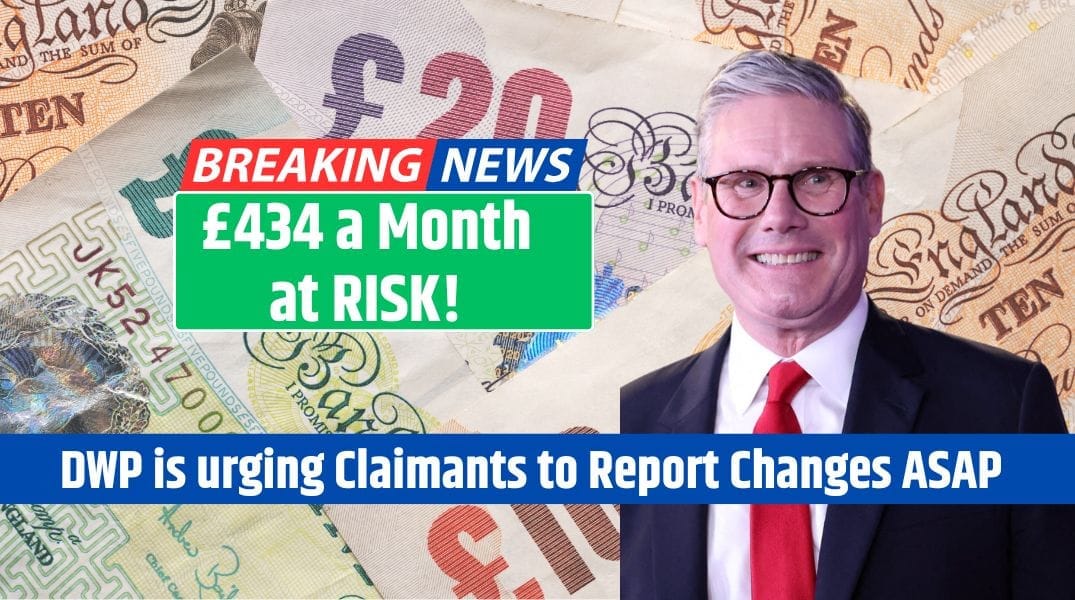UK Pension Triple Lock at Risk: The State Pension triple lock has long been a safeguard for pensioners, ensuring their payments increase in line with the highest of three factors: inflation (CPI), average wage growth, or 2.5%. However, former pensions minister Sir Steve Webb has warned that this system may not last forever.
While it has benefited pensioners, critics argue that it is expensive and unsustainable in the long run. With the government reviewing its policies, pensioners are being urged to stay informed about potential changes.
What Is the Triple Lock System?
The triple lock policy, introduced in 2010, guarantees that the State Pension rises annually by whichever of these three factors is highest:
- Inflation (CPI) – based on the Consumer Prices Index from September.
- Average earnings growth – measured from May to July of the previous year.
- 2.5% guaranteed increase – even if both inflation and earnings growth are lower.
This system has ensured steady pension increases, helping pensioners keep up with the rising cost of living. However, its future is now uncertain.
Why Is the Triple Lock Under Scrutiny?
1. High Costs for the Government
- The UK has an aging population, meaning more people are claiming State Pension, increasing financial pressure.
- The younger workforce is contributing to this system through taxes, raising concerns about its fairness.
2. Political Uncertainty
- Conservative leader Kemi Badenoch has suggested that means-testing could be introduced, which would limit the triple lock to pensioners based on their income levels.
- Shadow Chancellor Mel Stride has called the policy “unsustainable”, indicating possible changes.
- Labour’s new Pensions Minister, Torsten Bell, has previously supported scrapping the system entirely, though the party has recently reaffirmed its commitment to the triple lock.
3. Long-Term Sustainability
- Sir Steve Webb himself admitted that while the system is not perfect, it currently serves its purpose.
- However, he predicted that the triple lock wouldn’t last forever, as pension increases could outpace both wages and prices over time.
Potential Replacements for the Triple Lock
Experts suggest that instead of the triple lock, the government could introduce:
- A double lock – linking State Pension only to inflation and wages, removing the 2.5% minimum increase.
- A fixed percentage increase – setting a target for pension rises instead of using a formula.
- Means-testing – restricting pension increases to those on lower incomes.
State Pension Payment Increases for 2025/26
Despite uncertainty over the triple lock’s long-term future, pensioners will still see an increase in payments in 2025/26 based on the 1.7% CPI inflation rate from September.
Full New State Pension
- Weekly payment: £230.25 (up from £221.20)
- Four-weekly payment: £921 (up from £884.80)
- Annual amount: £11,973 (up from £11,502)
Full Basic State Pension
- Weekly payment: £176.45 (up from £169.50)
- Four-weekly payment: £705.80 (up from £678)
- Annual amount: £9,175 (up from £8,814)
The triple lock has been a crucial policy for protecting pensioners’ income, but rising costs and political debate put its future at risk. While Labour has committed to keeping the triple lock, there is no guarantee it will remain unchanged throughout the current Parliament. Pensioners should stay updated on policy discussions and be prepared for possible reforms in the coming years.
Source: Link
FAQ
What is the State Pension triple lock?
The triple lock ensures that the UK State Pension increases annually by the highest of inflation (CPI), average wage growth, or 2.5%.
Why is the triple lock under review?
The triple lock is being reviewed due to concerns about its cost and long-term sustainability, especially with an aging population increasing government spending.
Will the UK government scrap the triple lock?
While there is no official decision to scrap the triple lock, some politicians and economists argue it may be replaced with a less costly system.
How much will my State Pension increase in 2025?
In 2025/26, the full New State Pension will rise to £230.25 per week, while the full Basic State Pension will increase to £176.45 per week.
What alternatives could replace the triple lock?
Possible alternatives include a ‘double lock’ (linking pensions to inflation and wages only), a fixed percentage increase, or means-tested pension rises.
Who benefits most from the triple lock?
The triple lock mainly benefits pensioners, ensuring their payments keep pace with inflation and wage growth, helping maintain their standard of living.
How can I check my State Pension eligibility?
You can check your State Pension eligibility and forecast by visiting the UK government website and using their State Pension calculator.












This Labour government is not fit for purpose.
Quicker we can get rid of them the better.
The ageing population paid NI contributions for up to 50 years. The subsequent governments dipped into this and wasted the money now they are blaming us for being old.
Time to fix the problem. Put pensions back to the levels they should be on contributions paid.
They have tried everything SERPS SIPP. none can work while the government milks the fund.
Tax payers not cash cows there to pay for government mistakes. How about taking some out of the civil service pension scheme members pockets
Hello William robson,
Government Should think about the older generation of UK.
Government workers on final salary pensions with guaranteed inflation rise every year is totally unfair to people in the private sector. Maybe they should not have the state pension as that would save billions and stop the Government hitting poorest pensioners, but they not take off themselves will they
What about MPs final pensions… Are they going to be reduced…. Or capped.. Didn’t think so… One rule for us, no rules for them..